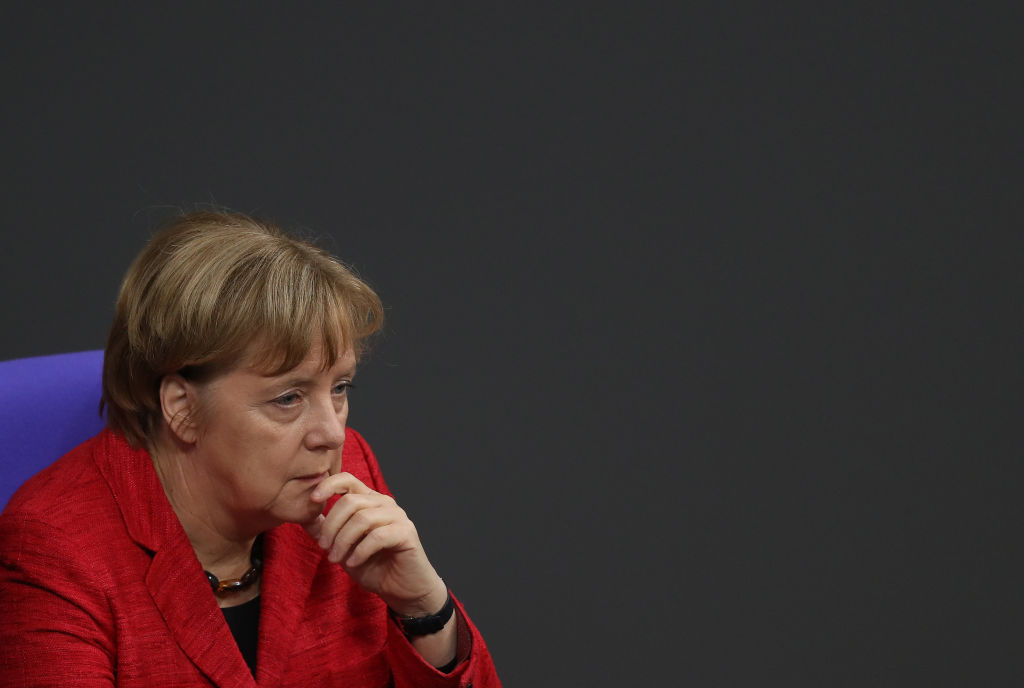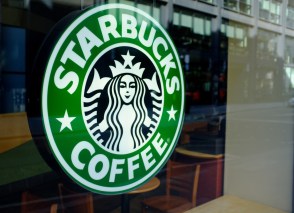A spectre is haunting Europe – the spectre of populism. Last week in Berlin, Christian Lindner, leader of the Free Democrats, walked out of Germany’s coalition talks, plunging the Bundesrepublik into an unprecedented crisis. Meanwhile in Trier, the ancient Rhineland city where Marx was born and raised, locals were busy preparing for next year’s Karl Marx bicentenary.
What on earth would Marx have made of Germany – and Europe – today? Sure enough, the proletariat are rising up against the bourgeoisie, but not in the manner he predicted. Marx assumed that nationalism, like the state itself, would wither away. Instead, those pesky proles are embracing nationalism like never before, and the results are shaking Europe to the core.
‘All the powers of old Europe have entered into a holy alliance to exorcise this spectre,’ wrote Marx, in the Communist Manifesto. ‘Pope and Tsar, Metternich and Guizot, French radicals and German spies.’ Metternich and Guizot are no longer with us, but their descendants are alive and kicking. If Marx was alive today, he’d surely identify that ‘holy alliance’ as the EU.
Marx got it all wrong about communism but he was bang on the money about capitalism, and one of his many pertinent observations was that in a capitalist democracy, parties of the extremes eventually eclipse the parties of the centre. In Russia before the Revolution, in the Weimar Republic between the wars, today in Northern Ireland his prophecy has come to pass – and now it’s happening all over Europe, not least here in Germany.
Ever since the Second World War, Germany has been ruled by moderate coalitions – either the centre-right Christian Democrats (CDU) or the centre-left Social Democrats (SPD), usually propped up by the liberal, business-friendly Free Democrats. For half a century that system worked remarkably well, but now it’s starting to unravel. For a generation, the CDU and the SPD have been losing support – from over 90 per cent in 1976 to barely 50 per cent today. Meanwhile, support for Germany’s smaller radical parties has been growing – first for leftists like the Green Party and Die Linke, and now for Germany’s right wing anti-immigration party, Alternative für Deutschland.
Ostensibly, Alternative für Deutschland seems to have little to do with the current crisis, which stems from a breakdown in coalition talks between Angela Merkel’s CDU, the Free Democrats and the Greens. Yet in fact, AfD’s rapid rise is the root cause of this impasse. AfD came third in September’s election, winning 94 seats in the Bundestag. Because none of the other parties will deal with them, the normal arithmetic of these coalition talks (which inevitably follow every Germany election) has gone awry.
AfD left a gaping hole where Merkel’s natural coalition partner ought to be, so she had to broker a deal with the Greens and the Free Democrats. Even for Europe’s master pragmatist, this has proved to be a bridge too far. German President Frank-Walter Steinmeier has now asked SPD leader Martin Schulz whether he’d be willing to enter another ‘grand coalition’ with Merkel’s CDU.
Schulz is reluctant to repeat the grand coalition of the last four years, during which Merkel cannibalised his party, much as David Cameron cannibalised Nick Clegg’s Lib Dems. However, this time around, it could well be a case of sacrificing party interests to national interests. Without the Free Democrats, only a CDU-SPD coalition will give Merkel a majority. Otherwise, her only option is a minority government with the Greens – or another election.
Merkel surprised pundits last week when she suggested she’d rather fight another election than enter a minority government (it’s not like her to want to roll the dice, with no knowing how they will fall). Yet the decision to call another election doesn’t rest with her, but with President Steinmeier, and he seems far keener on stitching together some sort of coalition – hence the long talks with Schulz. Schulz has said he’ll ask his party membership whether they want him to enter another grand coalition. Ironically, the key poll this year in Germany may well be an internal one, conducted by the SPD.
Moderates of every stripe will be praying Schulz does the decent thing and puts country before party, for another election looks fraught with peril, for the CDU and the SPD. The CDU polled 33 per cent in September’s election, the SPD 20 per cent. For both parties, this was their lowest share since the war. The latest polls put both these parties even lower. Meanwhile the Greens and the Free Democrats have both gained ground, and so have AfD. And yet a replay of September’s result would be an even bigger headache. If Germany went to the polls again and the result was pretty similar, its politicians would be back where they started, with history repeating itself (as Marx said), first as tragedy, then as farce.






Comments